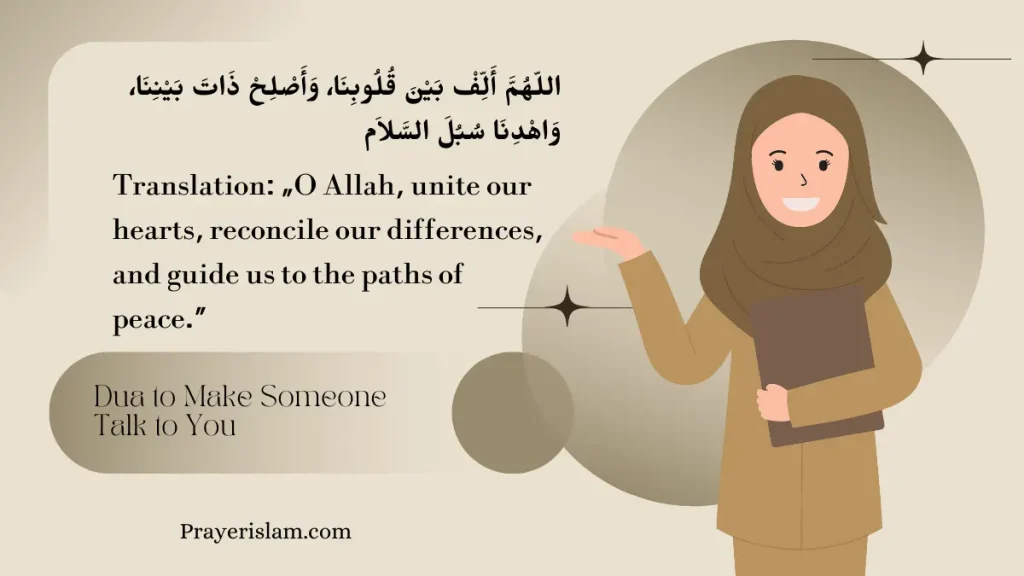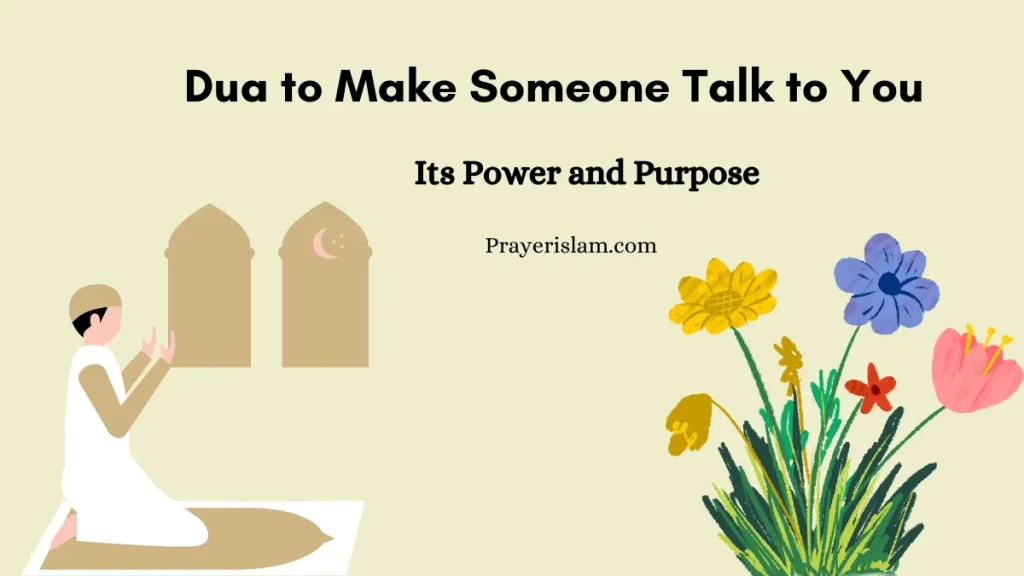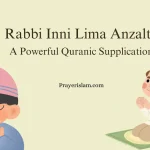In our daily lives, communication plays a crucial role in maintaining relationships, resolving conflicts, and expressing our feelings. However, there are times when someone close to us may distance themselves, leaving us feeling anxious and helpless. In such situations, many turn to spiritual practices, such as making dua (supplication), seeking Allah’s help to reconnect with loved ones. In this blog post, we will explore the concept of making dua to encourage someone to talk to you, the significance of this prayer, and how it aligns with Islamic teachings.
What is Dua to Make Someone Talk to You?
Dua is an essential act of worship in Islam, allowing us to directly communicate with Allah and seek His assistance in various aspects of life. A dua to make someone talk to you is a specific supplication made with the intention of mending communication barriers between you and another person. Whether it’s to resolve a misunderstanding with a friend, reconnect with a family member, or open the lines of communication with a colleague, this dua is a heartfelt request to Allah to soften the heart of the other person and bring them back into your life.
Dua to Make Someone Talk to You: Arabic and Translation
Here is a powerful dua that can be recited with the intention of encouraging someone to speak to you:
اللّهُمَّ أَلِّفْ بَيْنَ قُلُوبِنَا، وَأَصْلِحْ ذَاتَ بَيْنِنَا، وَاهْدِنَا سُبُلَ السَّلاَم
Transliteration: Allahumma allif bayna quloobina, wa aslih dhata baynina, wahdina subul as-salaam.
Translation: “O Allah, unite our hearts, reconcile our differences, and guide us to the paths of peace.”
This dua asks Allah to bring unity and peace between individuals, which naturally encourages communication and understanding. Reciting this dua with sincere faith can help in breaking the silence and fostering positive interactions.

Word Analysis
- اللّهُمَّ (Allahumma): A form of calling upon Allah, combining the word ‘Allah’ and the suffix ‘umma,’ which indicates a request or supplication.
- أَلِّفْ بَيْنَ قُلُوبِنَا (Allif bayna quloobina): This phrase means “unite our hearts,” where ‘Allif’ implies bringing together, and ‘quloobina’ refers to “our hearts.”
- وَأَصْلِحْ ذَاتَ بَيْنِنَا (Wa aslih dhata baynina): Translates to “reconcile our differences,” where ‘Aslih’ means to rectify or repair, and ‘baynina’ refers to the relationship or matters between us.
- وَاهْدِنَا سُبُلَ السَّلاَمِ (Wahdina subul as-salaam): This part means “guide us to the paths of peace,” with ‘Wahdina’ asking for guidance, ‘subul’ meaning paths or ways, and ‘as-salaam’ representing peace.
References to Quran and Hadith
Islamic teachings emphasize the importance of maintaining good relationships and communication. Several references in the Quran and Hadith highlight the significance of unity, peace, and reconciliation:
- Quran (3:103):
“And hold firmly to the rope of Allah all together and do not become divided…” - Hadith (Sahih Muslim):
“The believers are like a single structure; each part supports the other.”
These references underscore the value of staying connected and resolving differences through peaceful means, which aligns with the purpose of making dua to encourage communication.
Benefits of Dua to Make Someone Talk to You
Reciting a dua to make someone talk to you has several spiritual and emotional benefits:
- Spiritual Connection: By turning to Allah in dua, you strengthen your faith and trust in His wisdom and timing.
- Inner Peace: Making dua helps in calming your mind and alleviating the anxiety of broken communication.
- Encourages Forgiveness: The act of making dua encourages forgiveness and empathy, as you seek to mend the relationship rather than hold onto resentment.
- Promotes Positive Communication: When the dua is answered, it leads to healthy, positive communication that can resolve conflicts and misunderstandings.
When to Read the Prayer?
Timing plays a significant role in the effectiveness of a dua. While you can make dua at any time, there are specific moments that are considered particularly auspicious:
- During the Last Third of the Night: This is a time when Allah descends to the lowest heaven and answers the prayers of those who ask.
- After Obligatory Prayers: Making dua after performing your five daily prayers is highly recommended.
- On Fridays: The time between Asr and Maghrib on Fridays is considered a special time for making dua.
Summary
Making dua to encourage someone to talk to you is a powerful tool in Islam, helping to mend broken communication and foster unity. This supplication is not just about the act of talking, but also about resolving differences, promoting peace, and maintaining relationships in a way that pleases Allah. By understanding the meaning, timing, and context of this dua, we can approach our relationships with a more spiritual perspective, trusting in Allah’s guidance.
Frequently Asked Questions
Q1: Can I make this dua for anyone?
Yes, you can make this dua for anyone with whom you wish to improve communication, whether they are family, friends, or colleagues.
Q2: How often should I recite this dua?
There is no fixed number, but reciting it regularly with sincere intention is encouraged.
Q3: What should I do if the dua is not immediately answered?
Be patient and trust in Allah’s wisdom. Sometimes, the answer to our prayers comes in ways we do not expect.
Q4: Can this dua be made in any language?
While it’s recommended to recite dua in Arabic, you can make your supplications in any language as long as your heart is sincere.
Q5: Is there a specific number of times I should recite this dua?
No specific number is prescribed. It’s more important to focus on the intention and sincerity of your prayer.







